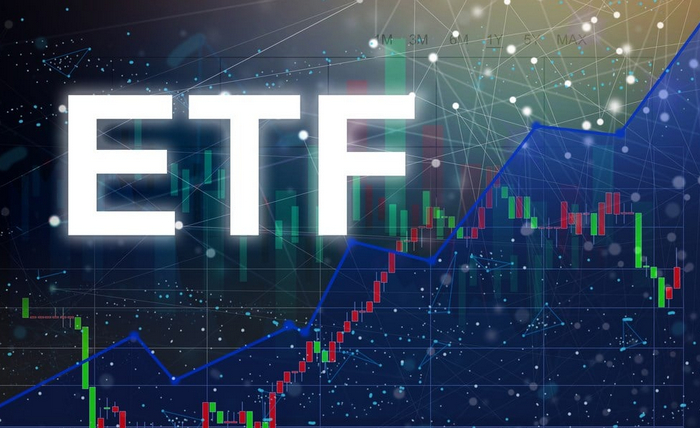-
 Bitcoin
Bitcoin $85,667.5889
1.45% -
 Ethereum
Ethereum $1,645.0464
1.09% -
 Tether USDt
Tether USDt $0.9999
0.01% -
 XRP
XRP $2.1508
1.30% -
 BNB
BNB $589.4345
-0.06% -
 Solana
Solana $131.4976
-0.50% -
 USDC
USDC $0.9999
0.00% -
 TRON
TRON $0.2514
-1.73% -
 Dogecoin
Dogecoin $0.1601
-2.43% -
 Cardano
Cardano $0.6447
0.89% -
 UNUS SED LEO
UNUS SED LEO $9.4306
0.49% -
 Chainlink
Chainlink $12.7413
0.32% -
 Avalanche
Avalanche $20.0223
0.06% -
 Stellar
Stellar $0.2413
0.24% -
 Toncoin
Toncoin $2.9581
4.42% -
 Sui
Sui $2.2029
-2.07% -
 Shiba Inu
Shiba Inu $0.0...01196
-1.39% -
 Hedera
Hedera $0.1666
0.16% -
 Bitcoin Cash
Bitcoin Cash $335.2737
-1.78% -
 Litecoin
Litecoin $78.2670
0.57% -
 Polkadot
Polkadot $3.6968
1.17% -
 Hyperliquid
Hyperliquid $16.3661
2.35% -
 Dai
Dai $1.0000
0.00% -
 Bitget Token
Bitget Token $4.3524
2.42% -
 Pi
Pi $0.7432
-1.22% -
 Ethena USDe
Ethena USDe $0.9990
0.02% -
 Monero
Monero $212.4190
2.42% -
 Uniswap
Uniswap $5.4203
0.01% -
 OKB
OKB $52.2810
-1.31% -
 Pepe
Pepe $0.0...07441
0.12%
What Is An Exchange Traded Fund (ETF)?
ETFs offer increased accessibility, transparency, diversification potential, and return opportunities compared to traditional mutual funds.
Oct 28, 2024 at 11:44 am

What Is An Exchange Traded Fund (ETF)?
An exchange-traded fund (ETF) is a type of investment fund that tracks a basket of assets, such as stocks, bonds, or commodities. ETFs are traded on stock exchanges, just like stocks.
There are many different types of ETFs, each with its own unique investment objective. Some ETFs track a particular index, such as the S&P 500. Others track a specific sector of the economy, such as technology or healthcare. Still others track a specific commodity, such as gold or oil.
ETFs offer a number of advantages over traditional mutual funds. First, ETFs are more liquid than mutual funds. This means that they can be bought and sold more easily, and at a lower cost. Second, ETFs are more transparent than mutual funds. This means that investors can easily see what assets are included in the ETF and how the ETF is managed.
ETFs are a popular investment choice for a number of reasons. They are a convenient way to diversify a portfolio, and they offer the potential for high returns. However, it is important to remember that ETFs are not without risk. Like all investments, ETFs can lose value.
How Do ETFs Work?
ETFs are created by investment companies. These companies pool together a group of assets and then issue shares in the ETF. The shares of the ETF are then traded on stock exchanges.
The price of an ETF is determined by the value of the underlying assets. When the value of the underlying assets increases, the price of the ETF will also increase. Conversely, when the value of the underlying assets decreases, the price of the ETF will also decrease.
ETFs are managed by investment professionals. These professionals make decisions about which assets to include in the ETF and how to allocate the ETF's assets. The investment professionals also monitor the ETF's performance and make adjustments as needed.
Benefits of ETFs
ETFs offer a number of benefits over traditional mutual funds, including:
- Liquidity: ETFs are more liquid than mutual funds, meaning that they can be bought and sold more easily and at a lower cost.
- Transparency: ETFs are more transparent than mutual funds, meaning that investors can easily see what assets are included in the ETF and how the ETF is managed.
- Diversification: ETFs are a convenient way to diversify a portfolio, as they provide exposure to a basket of assets in a single investment.
- Potential for high returns: ETFs have the potential to generate high returns, as they track the performance of the underlying assets.
Risks of ETFs
Like all investments, ETFs are not without risk. Some of the risks associated with ETFs include:
- Market risk: The value of an ETF can fluctuate with the market. When the market goes down, the value of the ETF will also go down.
- Tracking error: ETFs may not perfectly track the performance of the underlying assets. This can lead to investors losing money if the ETF does not perform as expected.
- Management fees: ETFs charge management fees, which can reduce the returns that investors receive.
How to Choose an ETF
When choosing an ETF, it is important to consider the following factors:
- Investment objective: What is your investment goal? Are you looking for growth, income, or diversification?
- Risk tolerance: How much risk are you willing to take? ETFs vary in risk, so it is important to choose one that is appropriate for your risk tolerance.
- Investment horizon: How long do you plan to invest for? ETFs can be a good investment for both short-term and long-term investors.
- Fees: ETFs charge management fees, which can reduce the returns that investors receive. It is important to compare the fees of different ETFs before choosing one.
Conclusion
ETFs are a popular investment choice for a number of reasons. They are a convenient way to diversify a portfolio, they offer the potential for high returns, and they are relatively low-cost. However, it is important to remember that ETFs are not without risk. Like all investments, ETFs can lose value.
Disclaimer:info@kdj.com
The information provided is not trading advice. kdj.com does not assume any responsibility for any investments made based on the information provided in this article. Cryptocurrencies are highly volatile and it is highly recommended that you invest with caution after thorough research!
If you believe that the content used on this website infringes your copyright, please contact us immediately (info@kdj.com) and we will delete it promptly.
- Galaxy Digital's $40M Ethereum Transfer Raises Eyebrows as Market Reacts
- 2025-04-15 16:00:12
- Publicly Listed Companies Increased Their Bitcoin Holdings by 16.1% in Q1 2025
- 2025-04-15 16:00:12
- Bitcoin Has Rebounded Spectacularly This Week, Trading Close to $85,000
- 2025-04-15 15:55:13
- Galaxy Digital Deposits 25,000 ETH, Raising Questions About Market Intentions
- 2025-04-15 15:50:12
- Mantra Has Just Gone Through A Crash That Has Wiped Out Most Of Its Value. Here's How On-Chain Metrics Have Changed During This Collapse.
- 2025-04-15 15:50:12
- Michael Saylor Does It Again: Strategy (Formerly MicroStrategy) Buys 3,459 BTC
- 2025-04-15 15:45:13
Related knowledge

What role does SEC play in Bitcoin ETF approval?
Feb 25,2025 at 06:48am
Key Points:SEC's Role in Bitcoin ETF Approval ProcessHistorical Efforts to Establish a Bitcoin ETFSEC's Criteria for Bitcoin ETF ApprovalPotential Impact of a Bitcoin ETF on the Cryptocurrency MarketTimeline and Outlook for Bitcoin ETF ApprovalArticle:SEC Play in Bitcoin ETF ApprovalThe United States Securities and Exchange Commission (SEC) plays a crit...

Who is eligible to issue Bitcoin ETFs?
Feb 25,2025 at 11:13am
Key Points:Only regulated financial institutions with the necessary expertise and infrastructure are eligible to issue Bitcoin ETFs.The Securities and Exchange Commission (SEC) has not yet approved any spot Bitcoin ETFs, but has approved several futures-based ETFs.Applicants must meet stringent requirements, including having a strong track record and su...

What impact does Bitcoin ETF have on the market?
Feb 25,2025 at 11:37am
Key Points:Introduction to Bitcoin ETFs and their role in the cryptocurrency marketHistorical development and performance of Bitcoin ETFsPotential benefits of Bitcoin ETFs for investors and the marketRisks and limitations associated with Bitcoin ETFsRegulatory considerations and their impact on Bitcoin ETFsArticle:Introduction to Bitcoin ETFsBitcoin exc...

Which investors are Bitcoin ETFs suitable for?
Feb 27,2025 at 04:01pm
Key Points:Understanding Bitcoin ETFsBenefits of Bitcoin ETFsSuitability of Bitcoin ETFs for Different InvestorsAssessing Risk Tolerance and Investment GoalsConsidering Short-Term and Long-Term StrategiesExamining Tax ImplicationsSeeking Professional AdviceUnderstanding Bitcoin ETFsBitcoin exchange-traded funds (ETFs) are investment vehicles that track ...

What is the administrative expenses of Bitcoin ETFs?
Feb 26,2025 at 12:24am
Key Points:Administrative expenses are a crucial factor to consider when evaluating Bitcoin ETFs.These expenses can significantly impact the performance of the fund and ultimately the investor's returns.Understanding the various components of administrative expenses is essential for informed decision-making.Comparing administrative expenses across diffe...

What are the fees for purchasing Bitcoin ETFs?
Feb 27,2025 at 07:13pm
Key Points:Bitcoin exchange-traded funds (ETFs) are a cost-effective and regulated way to gain exposure to Bitcoin.Fees associated with Bitcoin ETF purchases vary depending on the platform, trading volume, and account type.It is essential to evaluate fee structures carefully to optimize investment returns.Fees Associated with Purchasing Bitcoin ETFs1. B...

What role does SEC play in Bitcoin ETF approval?
Feb 25,2025 at 06:48am
Key Points:SEC's Role in Bitcoin ETF Approval ProcessHistorical Efforts to Establish a Bitcoin ETFSEC's Criteria for Bitcoin ETF ApprovalPotential Impact of a Bitcoin ETF on the Cryptocurrency MarketTimeline and Outlook for Bitcoin ETF ApprovalArticle:SEC Play in Bitcoin ETF ApprovalThe United States Securities and Exchange Commission (SEC) plays a crit...

Who is eligible to issue Bitcoin ETFs?
Feb 25,2025 at 11:13am
Key Points:Only regulated financial institutions with the necessary expertise and infrastructure are eligible to issue Bitcoin ETFs.The Securities and Exchange Commission (SEC) has not yet approved any spot Bitcoin ETFs, but has approved several futures-based ETFs.Applicants must meet stringent requirements, including having a strong track record and su...

What impact does Bitcoin ETF have on the market?
Feb 25,2025 at 11:37am
Key Points:Introduction to Bitcoin ETFs and their role in the cryptocurrency marketHistorical development and performance of Bitcoin ETFsPotential benefits of Bitcoin ETFs for investors and the marketRisks and limitations associated with Bitcoin ETFsRegulatory considerations and their impact on Bitcoin ETFsArticle:Introduction to Bitcoin ETFsBitcoin exc...

Which investors are Bitcoin ETFs suitable for?
Feb 27,2025 at 04:01pm
Key Points:Understanding Bitcoin ETFsBenefits of Bitcoin ETFsSuitability of Bitcoin ETFs for Different InvestorsAssessing Risk Tolerance and Investment GoalsConsidering Short-Term and Long-Term StrategiesExamining Tax ImplicationsSeeking Professional AdviceUnderstanding Bitcoin ETFsBitcoin exchange-traded funds (ETFs) are investment vehicles that track ...

What is the administrative expenses of Bitcoin ETFs?
Feb 26,2025 at 12:24am
Key Points:Administrative expenses are a crucial factor to consider when evaluating Bitcoin ETFs.These expenses can significantly impact the performance of the fund and ultimately the investor's returns.Understanding the various components of administrative expenses is essential for informed decision-making.Comparing administrative expenses across diffe...

What are the fees for purchasing Bitcoin ETFs?
Feb 27,2025 at 07:13pm
Key Points:Bitcoin exchange-traded funds (ETFs) are a cost-effective and regulated way to gain exposure to Bitcoin.Fees associated with Bitcoin ETF purchases vary depending on the platform, trading volume, and account type.It is essential to evaluate fee structures carefully to optimize investment returns.Fees Associated with Purchasing Bitcoin ETFs1. B...
See all articles























































































